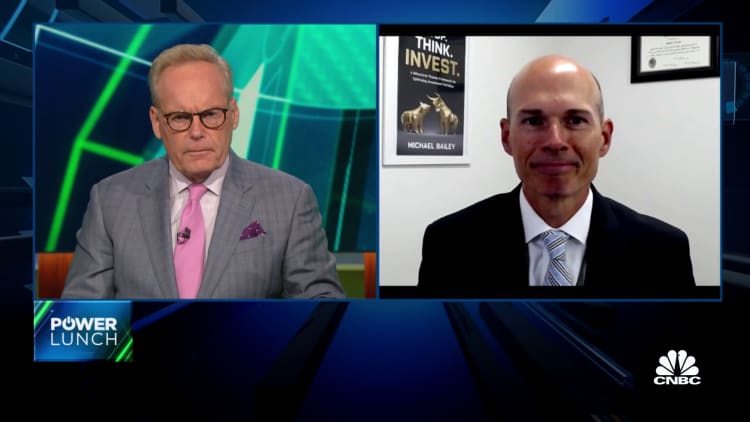4 big factors impacting markets and the economy right now
Avalon_studio | E+ | Getty Images
HUNTINGTON BEACH, Calif. — There are four big trends impacting the economy and stock market right now, and uncertainty around each is creating challenges for investors, market experts and investment strategists said Monday at the Future Proof wealth conference.
Those high-levels trends are inflation, the Federal Reserve’s interest-rate policy, the U.S. dollar’s strength and the Russian invasion of Ukraine, said Barry Ritholtz, chief investment officer and chairman of New York-based Ritholtz Wealth Management.
“The macro environment at present is uncertain,” Anastasia Amoroso, managing director and chief investment strategist at iCapital Network, said.
“We’ve been at this for nine months and what have we really figured out” except that inflation is longer-lasting than expected, she added.
More from Investor Toolkit:
How to qualify for more than $10,000 in federal climate incentives
Advisors’ portfolio suggestions amid recession fears
Despite two September checks, Supplemental Security Income falls short
The Federal Reserve has steadily raised borrowing costs since March this year to tame stubbornly high inflation.
Officials at the U.S. central bank have updated their expectations for how quickly and how much they will raise the benchmark interest rate — the Federal funds rate — to achieve their goal.
That “moving target” has been the biggest challenge this year relative to price volatility in the stock market, said Michael Arone, chief investment strategist for the U.S. SPDR business at State Street Global Advisors.
The war in Ukraine has also had global ripple effects on prices for energy, food and other commodities.

And the U.S. dollar is trading at its strongest in decades relative to currencies such as the euro and the British pound. That strength can “serve as a headwind in many ways,” Arone said. For one, about 45% of the revenue of companies in the S&P 500 Index is generated outside the U.S., and a strong dollar can negatively impact those earnings, he said. Imported goods may become less expensive, but U.S. exports become more expensive for other nations.
Meanwhile, the Federal Reserve is trying to achieve a “soft landing,” whereby higher borrowing costs slow the economy and tame fast-rising consumer prices, but don’t trigger a recession or considerable unemployment.
Fed officials have repeatedly acknowledged the difficulty of that task but Amoroso believes the central bank is in the process of achieving it.
Chipping away at ‘the inflation puzzle’
“We are starting to chip away at pieces of the inflation puzzle,” she said.
U.S. gross domestic product is slowing but “isn’t falling off the cliff,” she explained. Energy prices are moderating, which should over time feed into moderating food prices, she said. (Food prices partly reflect the energy costs involved in transport.) Consumers are also starting to push back on companies for higher airline fares, food prices and other costs, Amoroso said.
“I think it’s getting…
Read More: 4 big factors impacting markets and the economy right now
